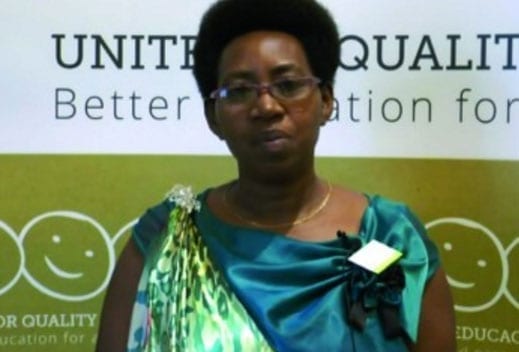
Dec 18, 2015
Hundreds of union leaders and members, including at least 250 teachers, have fled Burundi while dozens more have been jailed, as the east African country roils in widespread violence. In October, a journalist and his family were shot dead at their home by security forces, according to the International Federation of Journalists. Broadcast media workers also were attacked with heavy weapons in May.
“I was part of a teacher’s union and because I was helping teachers fight for their rights, I was seen as an opponent,” according to one teacher, now in internal exile in the country’s Makamba Province. “A friend in the police told me that I was on the ‘list’ to be arrested so I had to flee.”
The refugee’s story is among those collected in a Refugee International report which found that Burundians were threatened by police due to their membership in civil society organizations perceived not to be supportive of the government, such as human rights organizations and unions.
Unions and their members also are being targeted in other ways. For instance, the Syndicat des Travailleurs de l’Enseignement du Burundi (STEB), which represents teachers, reports that its bank account was ordered closed last week.
Over the weekend, 87 people were killed. Since April, some 220,000 people have fled Burundi and 15,000 people have been displaced within the country. The violence stems from protests that began after President Pierre Nkurunziza decided to run for a third term.
The United Nations Human Rights Council approved a resolution yesterday calling for the quick deployment of experts to Burundi to look into abuses amid the growing violence. The UN high commissioner for human rights has called on Burundi’s leaders to disarm pro-government militias, halt torture and resume political dialogue, saying that sanctions, asset freezes and travel bans should be imposed on those responsible for abuses.
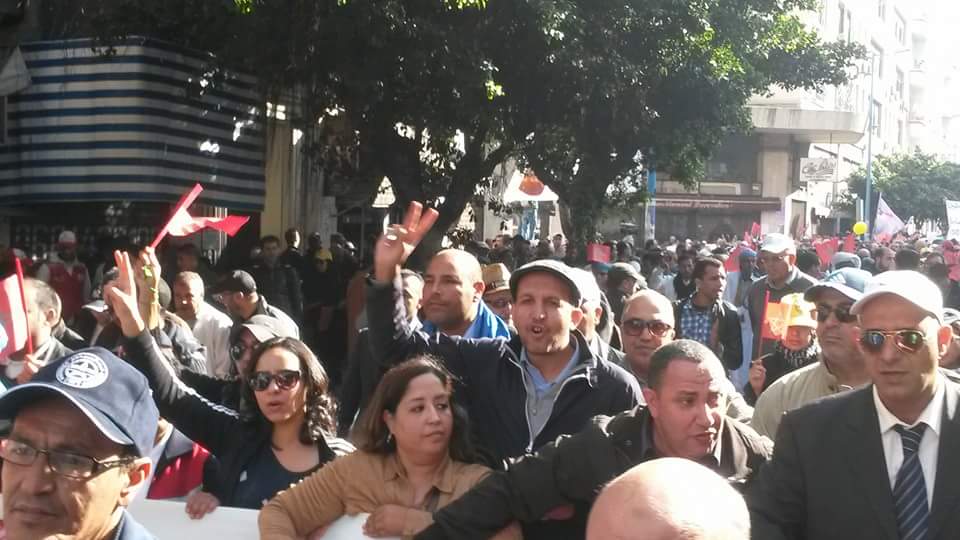
Dec 11, 2015
Thousands of public-sector employees rallied and marched as part of a national strike yesterday in which workers in local agencies and up to 80 percent in government ministries walked off the job. Workers seek to draw attention to the unwillingness of the government to negotiate with them on such issues as wages and retirement.
The strike, held on International Human Rights Day, aimed to “defend the gains of retirement for workers, trade union freedoms, rights and dignity,” according to a joint statement by the four unions that called for the action.
Members of the Moroccan Labor Union (Union Marocaine du travail), the Democratic Confederation for Labor (Confédération démocratique du travail), the General Union of Moroccan Workers (Union Generale des Travailleurs du Maroc) and the Democratic Federation for Labor (Fédération démocratique du travail) also denounced the government’s unilateral decisions in the absence of social dialogue and the unilateral approach for the retirement reform.
Union members have sought enforcement of an agreement made in April 2011 with the previous government that improved civil servants’ salaries, boosted the minimum pension and promoted union freedom. The national strike follows a November 29 action in which tens of thousands of workers from all four unions rallied and marched to call attention to how the government’s inaction has eroded their ability to support their families. Workers also took part in a month of protest in May, and say they are planning another national strike in coming weeks.
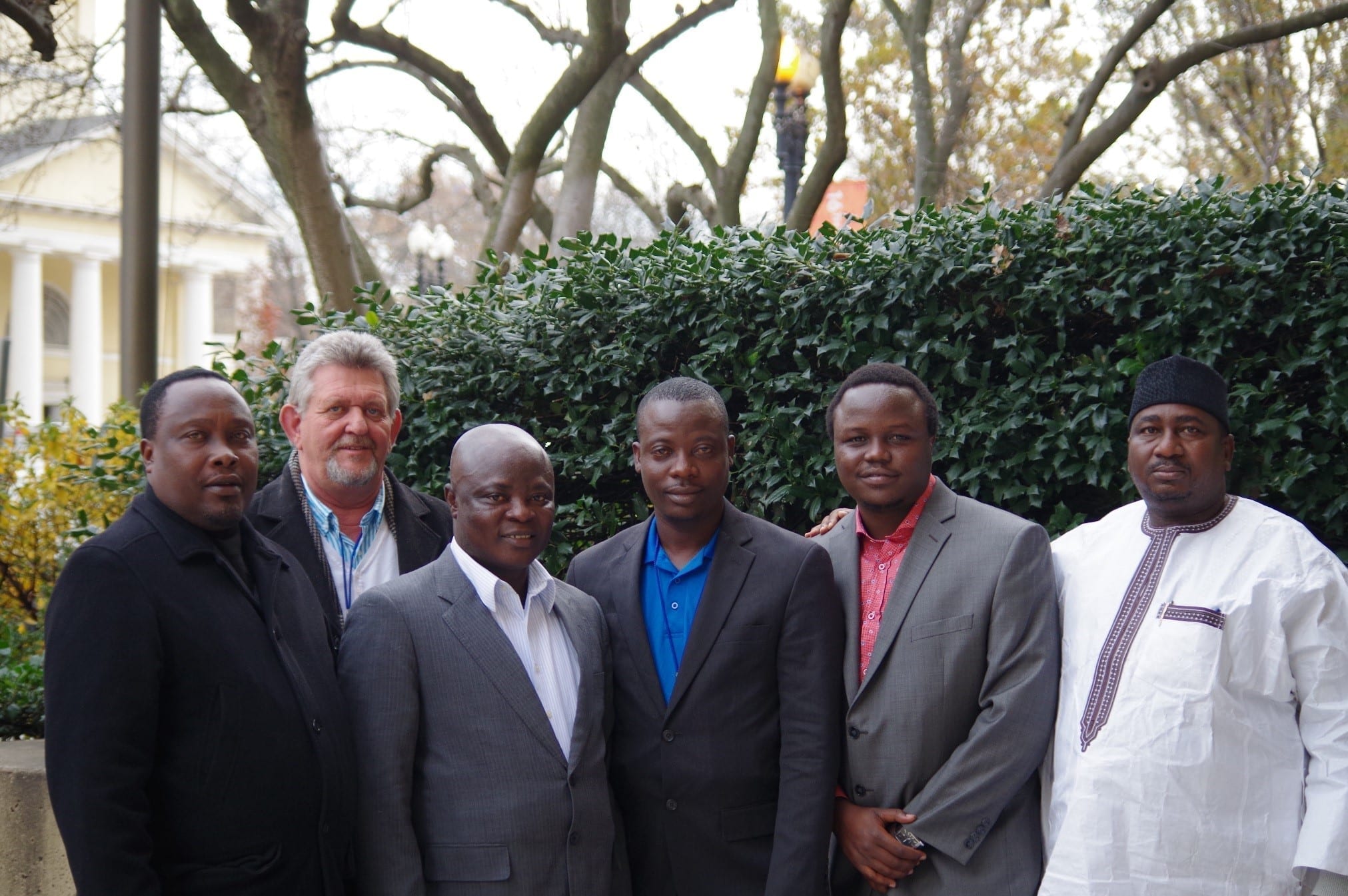
Dec 10, 2015
Addressing unemployment and underemployment, especially for young workers, is the most pressing issue for trade unions across Africa, according to participants in an African Labor Leaders Exchange Program sponsored by the Solidarity Center.
Speaking at a December 9 panel discussion at the AFL-CIO in Washington, D.C., six union leaders from Kenya, Liberia, Nigeria and South Africa discussed the challenges in securing economic prosperity for working people—and their strategies for empowering workers in the formal and informal economies.
“What faces us is high levels of unemployment, poverty,” said Edward de Klerk, deputy general secretary of South Africa’s United National Transport Union (UNTU).
“Unemployment is an African issue,” said Philip Kwoba, director of Youth Organizing with the Central Organization of Trade Unions (COTU) in Kenya. Unions in Kenya are reaching out to informal economy workers, which include many young workers, helping them form worker savings associations as a step toward unionization and gaining bargaining rights. “We are allocating resources to help,” said Kwoba.
Members of the panel, moderated by Solidarity Center Regional Program Director for Africa Imani Countess, said poverty also is fueled by low wages. “Wage inequality is this battle still we have got,” said de Klerk. In Nigeria, unions are tackling wage issues by addressing government policies that reduce the pay of public-employees, including teachers, said Muhammed Nasir Idris, National Treasurer Nigeria Union of Teachers (NUT).
Lack of employment opportunity and poverty in Liberia puts youth at risk of labor trafficking within the country’s borders, said Liberia Labor Congress (LLC) General Secretary David Sackoh.
Sackoh said labor recruiters take children from parents in their villages, promising the children will go to school in the city. Instead, the children are used in forced labor. “Even though our research shows (the children) want to return,” they are unable to do so for seven to 10 years,” he said.
Sackoh pointed to the Liberian trade union movement’s tremendous victory in eradicating child labor at the Firestone Natural Rubber Liberia plantation, and said the union movement now is working to address the issue at the seven other plantations across the country.
During questions with the audience, which included a packed crowd of union activists, policy experts and international experts, union leaders also discussed drawing more women into trade union leadership.
“Getting women elected to high offices is now on the union agenda,” said Boniface Kavuvi, general secretary of the Kenya Union of Commercial, Food and Allied Workers (KUCFAW). Kavuvi pointed to domestic workers in Kenya, represented by KUDHEIHA, as an example of dynamic organizing and strong leadership by women in Kenya. “They have done a tremendous job,” he said.
In Liberia, unions are pushing for 30 percent representation by women in union leadership, mirroring the country’s effort to increase women’s representation in the national legislature, said Isaac Grant, LLC organizing coordinator.
The six union leaders traveled to the United States for a South–South labor leaders’ exchange in which African labor leaders met with community and trade union organizers across the southern United States. The Solidarity Center worked with the U.S.-based labor education program, the National Labor Leadership Initiative (NLLI), to facilitate the exchange, sponsored by the U.S. Department of State’s Bureau of Educational and Cultural Affairs.
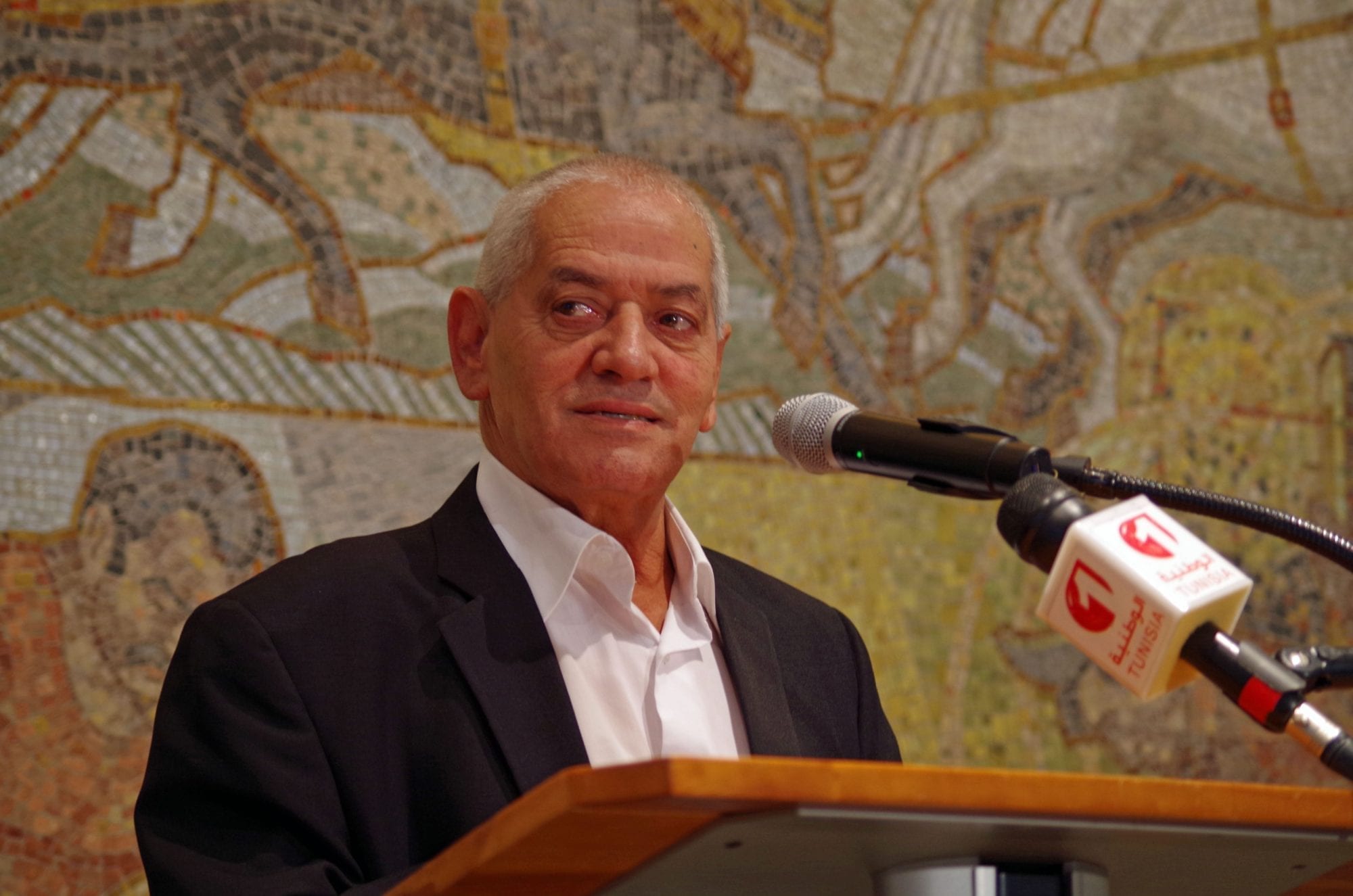
Dec 10, 2015
Marking International Human Rights Day, the Nobel Peace Prize was formally awarded today to the Tunisian “Quartet,” which includes the country’s labor movement for its role in brokering a peaceful path to democracy.
At a ceremony in Oslo, Norway, Houcine Abassi, general secretary of the Tunisian General Labor Union (Union Générale Tunisienne du Travail, UGTT) said, “Tunisia is an exception so far in the Arab Spring countries, but this doesn’t mean that it may not be replicated in other countries.”
Speaking last month at a ceremony in Washington, D.C., Abassi said “the Nobel Prize is not given just to us, but to all the labor movements in the world.” The award “sends a message that unions can play an equal role in government, in social dialogue … and many times can provide critical leadership.”
While in Washington, Abassi received the Global Fairness Initiative’s Fairness Award on behalf of UGTT, a long-time Solidarity Center ally.
The Nobel Committee recognized the Tunisian National Dialogue Quartet—comprised of the (UGTT); the Tunisian Confederation of Industry, Trade and Handicrafts; the Tunisian Human Rights League; and the Tunisian Order of Lawyers—for establishing “an alternative, peaceful political process at a time when the country was on the brink of civil war.”
Their efforts led the country to democracy and the adoption of a Constitution based on fundamental human rights.
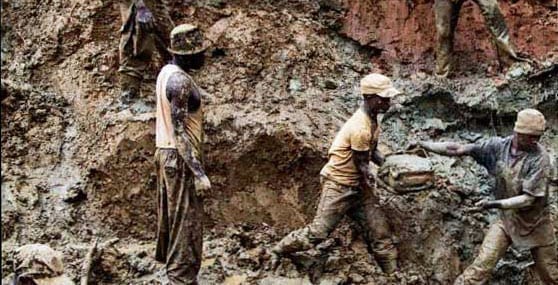
Dec 2, 2015
The following is crossposted from Equal Times.
On November 18, 2015, Norway ratified the International Labor Organization’s (ILO) Forced Labor Protocol, which strengthens and updates the 1930 Forced Labor Convention (Convention 29) by adding new measures to prevent, protect and compensate those affected.
According to ILO data, some 21 million people globally are victims of forced labor, generating approximately $150 billion each year. However, the hidden nature of this and other forms of extreme labor exploitation mean the true figures could be much higher.
By becoming the second country in the world after Niger to sign the UN treaty, Norway has ensured that the Protocol will be brought into force next November.
“Norway’s ratification will help millions of children, women and men reclaim their freedom and dignity,” said ILO Director-General Guy Ryder in a statement. “It represents a strong call to other member states to renew their commitment to protect forced laborers, where ever they may be.”
Renée Rasmussen, Confederal Secretary of the Norwegian Confederation of Trade Unions, said: “The world has changed dramatically since 1930, but in many societies the issues that Convention 29 was created to deal with are still unpleasantly current.”
Although 56 per cent (11.7 million), 18 per cent (3.7 million) and 9 per cent (1.8 million) of all forced labourers are found in Asia, Africa and Latin America respectively, the reach of modern-day slavery crosses countries, continents and sectors.
Workers in agriculture, fishing, manufacturing, domestic work and mining in the Global South are particularly vulnerable, while in advanced economies huge profits are generated from forced labor in supply chains.
“Our experience [in Norway] is that forced labor seems to appear together with social dumping and violations of the Working Environment Act (labor laws) and criminal activities,” Rasmussen explained.
Further ratifications
The ILO recently joined forces with the International Trade Union Confederation and the International Organization of Employers to the promote the ratification of the Protocol, primarily through the 50 for Freedom campaign.
By mobilizing public support, it is hoped that 50 countries will ratify the Forced Labor Protocol by 2018. It the ultimate aim is universal ratification of Convention 29—as eight countries, including the United States and China are yet to do so—and the Protocol by 2030.
While various countries have expressed support for the campaign, a number of African countries appear to be taking the lead. Mauritania has started the legislative process to ratify the Protocol and last month the Zambian president Edgar Lungu signalled his country’s commitment to eliminate modern slavery.
“My country will lead by example in taking the necessary steps required towards ratification of the Protocol,” he told delegates at a regional ILO conference on trafficking and forced labour in the Zambian capital of Lusaka.
Speaking at the same conference, Cosmas Mukuka, Secretary General of the Zambian Confederation of Trade Unions explain why the ratification is so important.
“Zambia continues to be the transit point for human trafficking in Africa meaning that enforcement of Convention 29 on forced labour remains a challenge and therefore calls for a regional strategy to effectively combat forced labour and human trafficking.”
Ahead of the International Day for the Abolition of Slavery, Urmila Bhoola, the United Nations Special Rapporteur on contemporary forms of slavery, called on states, business and civil society to intensify the fight against modern slavery in supply chains.
“Modern slavery is particularly difficult to detect beyond the first tier of complicated supply chains of transnational businesses,” she said.
“However, these forms of slavery can be rooted out through a multi-stakeholder and multi-faceted approach ensuring that all business operations and relationships are based on human rights, that those responsible for supply chain-related human rights violations are held accountable and that the victims are guaranteed the right to effective judicial and non-judicial remedy and appropriate and timely assistance aimed at empowering them.”





